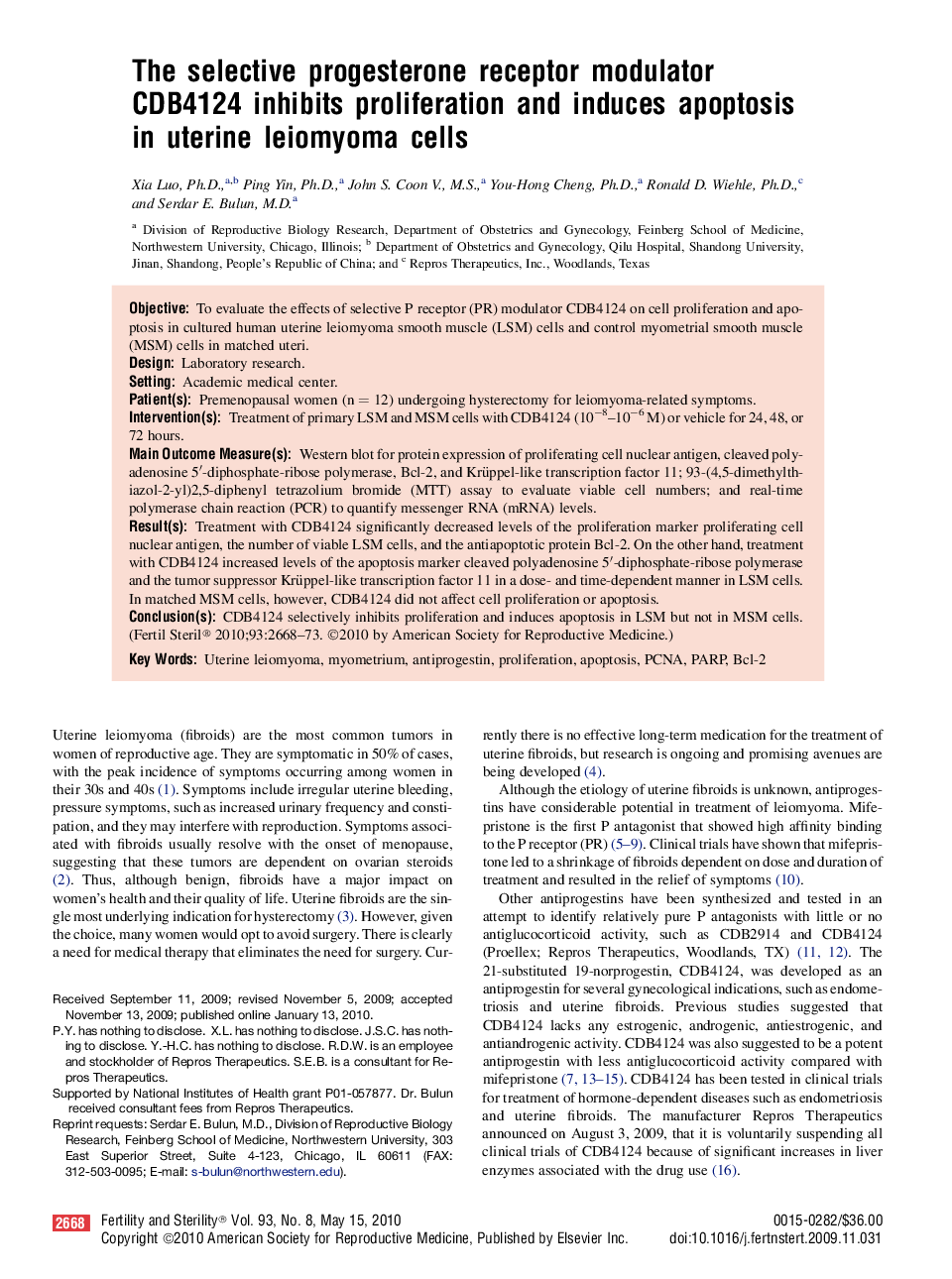| Article ID | Journal | Published Year | Pages | File Type |
|---|---|---|---|---|
| 3939686 | Fertility and Sterility | 2010 | 6 Pages |
ObjectiveTo evaluate the effects of selective P receptor (PR) modulator CDB4124 on cell proliferation and apoptosis in cultured human uterine leiomyoma smooth muscle (LSM) cells and control myometrial smooth muscle (MSM) cells in matched uteri.DesignLaboratory research.SettingAcademic medical center.Patient(s)Premenopausal women (n = 12) undergoing hysterectomy for leiomyoma-related symptoms.Intervention(s)Treatment of primary LSM and MSM cells with CDB4124 (10−8–10−6 M) or vehicle for 24, 48, or 72 hours.Main Outcome Measure(s)Western blot for protein expression of proliferating cell nuclear antigen, cleaved polyadenosine 5′-diphosphate-ribose polymerase, Bcl-2, and Krüppel-like transcription factor 11; 93-(4,5-dimethylthiazol-2-yl)2,5-diphenyl tetrazolium bromide (MTT) assay to evaluate viable cell numbers; and real-time polymerase chain reaction (PCR) to quantify messenger RNA (mRNA) levels.Result(s)Treatment with CDB4124 significantly decreased levels of the proliferation marker proliferating cell nuclear antigen, the number of viable LSM cells, and the antiapoptotic protein Bcl-2. On the other hand, treatment with CDB4124 increased levels of the apoptosis marker cleaved polyadenosine 5′-diphosphate-ribose polymerase and the tumor suppressor Krüppel-like transcription factor 11 in a dose- and time-dependent manner in LSM cells. In matched MSM cells, however, CDB4124 did not affect cell proliferation or apoptosis.Conclusion(s)CDB4124 selectively inhibits proliferation and induces apoptosis in LSM but not in MSM cells.
